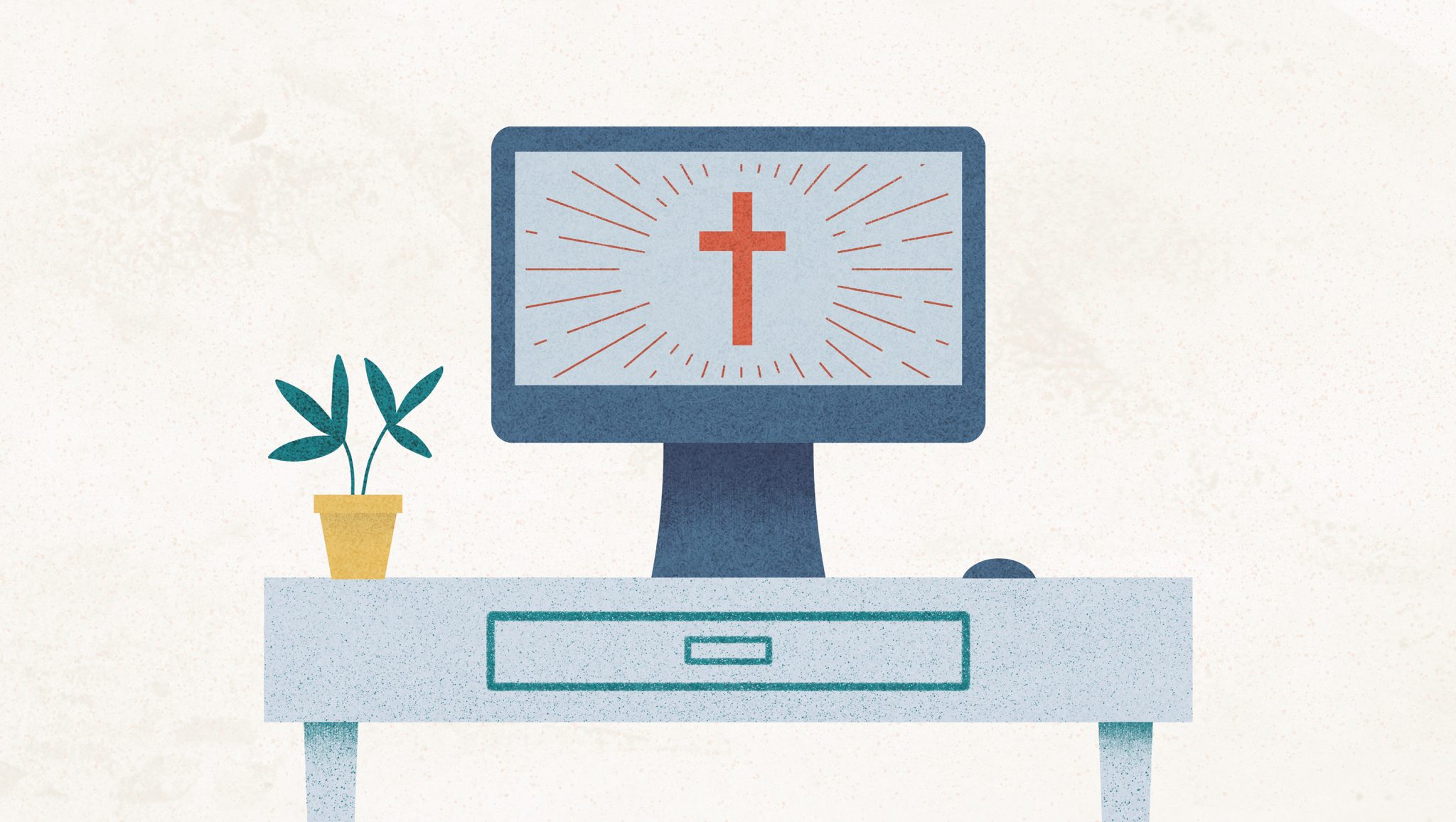
Corporate worship is foundational to God’s relationship with his people. When God brings his people out of Egypt and gathers them at Mount Sinai, he binds himself to them in a covenant, gives them the law, and institutes the manner in which they are to be in relationship with him. In response, they eat and drink in his presence and worship him. Mike Cosper, former pastor at Sojourn Church, defines worship this way: “God has spoken through creation, through his written Word, and through his Son. Everything we do is a response to his generous revelation of himself.”
In worship, we set aside time and space to give all honor and glory to God and to rehearse the astonishing story of salvation. Worship establishes rhythms of spiritual discipline and faithful discipleship. It proclaims mercy and justice in the name of Jesus Christ in an unmerciful and unjust world. It reminds us who God is and who we are, and bears witness to the world that we serve the King of all creation. Bryan Chapell, former president of Covenant Seminary and soon-to-be clerk of the PCA reflects, “It would have been enough for God simply to ask us to praise him for [his] glory, but he did more. He gave us worship that enables us to praise his glory and reflect it.” The author of Hebrews proclaims that because we have “confidence to enter the Most Holy Place by the blood of Jesus…Let us consider how we may spur one another on toward love and good deeds. Let us not give up meeting…but let us encourage one another.” In worship, the Holy Spirit shapes us into the image of Christ, and, as the Heidelberg Catechism so beautifully puts it, “makes us wholeheartedly willing and ready to live for him.”
This faith we profess is a shared, embodied reality in which God has invited us to actively participate when we gather on Sunday mornings. We were created to worship our Creator individually, but also as a community, physically coming together on the Lord’s Day. It is right that we feel deeply our inability to gather corporately during this unprecedented time of Covid-19. We worship a Savior who took on flesh and dwelt among us, and we mourn the loss of the physical presence of the body of Christ. Our inability to assemble on Sunday mornings is not only the loss of something familiar, but the loss of something we are designed for. Yet even in the midst of this loss we are still God’s people, offering our worship in spirit and in truth. Let me offer three reflections as we persevere through this time.
First, we are not re-creating an experience but re-telling a story. Sunday mornings walk us through the gospel narrative. They remind us that God has created us and is worthy of all praise and adoration, and they remind us of our sin and need for redemption. They assure us that, out of God’s infinite love for us, he provided redemption through his Son, they instruct us through his Word, and they shape us through the Sacraments so that it is no longer we who live but Christ who lives in us (Gal. 2:20). It is certainly good and right that we long to walk through this story together, in our church building, and part of this season is grieving the reality that we cannot. Even so, God’s invitation to glorify his name, to know Christ and him crucified (1 Cor. 2:2), and to be nourished by these realities week after week still stands. It may be more difficult to sing, the surroundings may be distracting, the lack of fellowship and comfort from spending time with God’s people may be weighing heavy on our hearts, but God’s care for his people and his absolute sovereignty (even over the weather and Covid-19) remain unshakable. Through scripture, prayer, and song, we can still meditate on and revel in the gospel.
Second, we are not passive observers but active participants. Watching a service on a screen can easily be a passive act, and it can be difficult to participate in worship when the format feels so far from what our hearts desire. Yet even now, worship is an action. It is a Spirit-led response to God’s gracious revelation of himself through embodied practices that shape and form us. Think of the worship of God’s people in Scripture: temple practices, the sacrificial system, the Lord’s Supper—these are all tangible, sensory acts that God has designed for us as human beings, that our hearts, minds, and bodies might be fully engaged when we worship. The temple itself was full of beautiful tapestries, carvings, and apparatus, all meant to point to a God who is before all things and in whom all things hold together (Col. 1). This is why the worship spaces at LMPC are so compelling. The beauty of stained glass, the power of congregational singing, and the wonder of creation all contribute to our experience of God’s presence with us in worship. They point to his transcendence and immanence at the same time.
In this light, it is entirely appropriate to move toward these sensibilities when we worship at home. We can use the beauty of our own spaces and the joyful noise we make when we sing to tap into what Scripture models for us. Similarly, we can engage in the service more fully by physically moving throughout the service, kneeling at confession, standing when we sing, and raising our hands at the benediction. Remember that, when praying, Ezra knelt before the Lord (Ezra 9:5) and the Psalmist cried out to God saying, “Hear my cry for mercy as I call to you for help, as I lift up my hands toward your Most Holy Place” (Ps. 28:2). He is not speaking metaphorically. In Christ we live, and move, and have our being (Acts 17:28).
Third, this situation is temporary but our identity is eternal. Who we are as God’s people is not defined by our present circumstances. Certainly they will shape us and change the world around us, but they are temporal. They will pass. We are members of the household of God, “built on the foundation of the apostles and prophets, with Christ Jesus himself as the chief cornerstone. In him the whole building is joined together and rises to become a holy temple in the Lord. And in him we too are being built together to become a dwelling in which God lives by his Spirit” (Eph. 2:20-22). We are a new creation, a new temple, indwelt by the Holy Spirit, a community God knows, loves, and is molding more each day into the image of his Son.
Beyond this, our worship will not end with our earthly lives. In the book of Revelation John witnesses the throne room of heaven in which every living creature cries out, “To him who sits on the throne and to the Lamb be praise and honor and glory and power, forever and ever!” (Rev. 5:13b) As awkward as remote worship is in our present circumstances, how much more awkward is our earthly, gathered worship compared to that heavenly chorus we will join in the new heavens and the new earth. The worship we offer now, in any form, is in preparation and expectation of that eternal worship with God himself.
This is a difficult season. Some days it seems like everywhere we turn all we see or feel is exhaustion and fear, but remember this, “Because of the Lord’s great love we are not consumed, for his compassions never fail. They are new every morning; great is your faithfulness” (Lam. 3:22-23). We may not be able to physically gather together to worship, but we can joyously exclaim with the hymn writer and with believers across the globe, “This is my story, this is my song, praising my Savior all the day long!”
